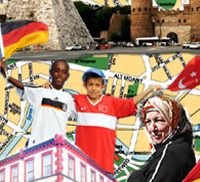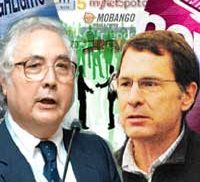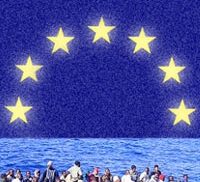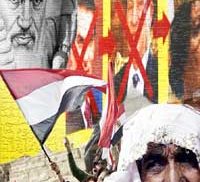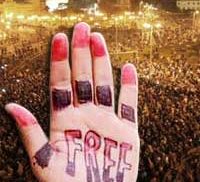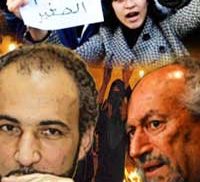This dossier stems from the debate sparked by Elizabeth Suzanne Kassab’s article—which opens this collection—on the transformation of the Arab intellectual scene after 2011. Her notion of a “new contemporary” in Arab thought prompted a series of contributions that do not aim to offer solutions, but rather to raise new questions, probe unresolved issues, and put forward critical perspectives. Bringing together Kassab’s essay and two related pieces, the dossier explores how Arab thought is redefining itself in light of the uprisings, the failures of political transitions, and the moral and intellectual rupture marked by Gaza.
Dossiers
- Who are all those thinkers, from Morocco to Iran, who are attempting to change Islam from within? And what are their most challenging ideas? Some famous, some less so, some religious, some secular, they are the often-persecuted philosophers, sociologists and authors of Islam today. After publishing an “intellectual chart” of changes in Islam in our magazine Reset in Italian, ResetDoC.org wishes to offer its English-speaking readers a compass to navigate those encouraging dialogue in the Muslim world. We start today with a essay by Fred Dallmayr from the University of Notre Dame on Mohammed Abed al-Jabri and Nasr Hamid Abu Zayd, two immensely important philosophers, both of whom died in the past year. There are also the profiles of three great philosophers of change: Muhammad Talbi, Abdolkarim Soroush, and Abdou Filali-Ansary, as well as Filali-Ansary’s essay on the complex relationship between secularism and the Muslim world. READ HERE
- Rome, Berlin, Sarajevo, Dublin, Istanbul: how are great European cities from Ireland to the Bosphorus changing? A crossroad for different cultures, religions and languages, the space shared by “Us” and the “Others” who are now our neighbours, the metropolises on the Old Continent portray a West addressing its future in a globalized world. Pluralism, migrations, acknowledgement and equal respect for minorities are the challenges for new democratic citizenship. Five stories from five different corners of Europe and, for ResetDoc, an essay by Richard J. Bernstein.
- Olivier Roy comments: The political death of the terrorist organization together with that of Bin Laden allow for the ending of wars and open a new page in relations between Islam and the West. Protests against the Abbottabad raid have been few. International analysts and a criminologist give their comments, as well as explain the reactions among the journalists of the “Arab Spring”.
- In the last few years the Arab world has shown a renewed fascination for Turkey. Is this the result of a foreign policy that disguises “neo-Ottoman” ambitions? It is not just that. Exporting soap operas and cultural models that are fashionable from Syria to Morocco, the nation governed by Erdogan’s party is a successful example of democratic and republican Islam. But can the Turkish model still work now that the democratic awakening has truly turned many Arab countries on their heads? And under what conditions?
- Have social networks, mobile phones, new satellite channels and the integration of the old and the new media made the world more democratic? Or, have they instead strengthened the old and well-known forms of power? The latest media revolution began to have effects on society and politics a few years ago, from Spain to the Philippines, but recent uprisings in the Arab world have made its potential even more obvious. We debate this issue with Manuel Castells and Steven Livingston.
- The Arab uprisings, with all the uncertainties that characterize transitions, have led many to flee in search of fortune in the north, on the other side of the Mediterranean. While here the extreme right fans the flames of xenophobia (see Marine Le Pen and Mario Borghezio’s visit to Lampedusa), the Old Continent is faced with the dilemma of acceptance. In the meantime we have been to Tunisia to meet the migrants who dream of Europe.
- Islam does not appear to have played much of a role in the recent Arab uprisings. The young were moved above all by a desire for freedom and democracy. And yet, within certain Right-wing parties and the Middle Eastern regimes too, there are those who wave the spectre of the 1979 Iranian revolution, fearing that the fall of the old regimes will open the gates to radical Islamist parties, or even to movements close to al Qaeda. Do such risks really exist?
- We knew that that the question about Islam and democracy being compatible was badly worded, since we knew Indonesia and Malaysia were different… But the Arab world did have a problem with democracy. Current events are providing an answer to this problem. Although this is just the beginning, things look promising and there are signs of an answer in the Tunisian and Egyptian revolutions, while Libya revolts against Gaddafi’s 42-year long dictatorship with blood being shed.
- The Arab people are taking their destinies into their own hands. They are led by tired and angry young people just as those who, in 1989, rebelled against communist regimes in Eastern Europe. But who are these new leading players in Arab history inspired by? (Also read our interviews with Saad Eddin Ibrahim and Tariq Ramadan as well as the article by Massimo Campanini)
- It has been called “the first Arab revolution.” The Tunisian people have deposed their dictator and the world remains amazed, both the westerners who had until now defended despot Ben Ali and the regimes that now fear they will meet the same destiny. Should Egyptian President Mubarak be afraid in this presidential election year? We asked Tariq Ramadan and Saad Eddin Ibrahim.



